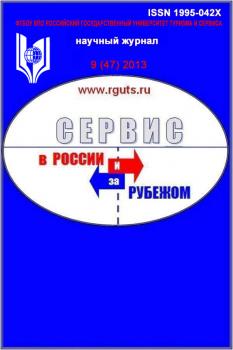The article is devoted to theoretical aspects of the museum development as a unique socio-cultural phenomenon. The author highlights the main directions and prerequisites caused the changes in the museum environment at the present stage. A museum is regarded as an important and effective public institution with purpose determined by a deep socio-cultural meaning as a symbol of culture, in which different opinions, positions and points of view coexist. Modern museum operates within the communication model revealing the multifunctional possibilities inherent in the very essence of the museum. The article considers the historical origins of the current conceptions on a museum, claimed by the Russian thinker N.F. Fedorov, as a mechanism for revitalizing social memory and the organic part of modern cultural life. The author also considers the questions of the museum community concern on the specifics of communication in the museum space, the definition of the museum sociocultural functions, the rethinking of the ways to their distinguishing, and the necessity to form such exposition "non-verbal utterances" that can be understood by visitors through "joining" to personal needs and life experience. The article also identifies the prerequisites for the inclusion of service experts in museum activities related to the need for improving museum operating. Interprofessional interaction of museum specialists is necessary to meet public requests to the museum and to develop museum product quality – exhibition projects, adequate language texts and a variety of cultural and recreational programs considering the unique social context and cultural features of the museum audience.
socio-cultural phenomenon, non-verbal utterance, "collection of persons", museum text, museum communication
1. Ravelli L.J. Museum Texts: Communication Frameworks. London: Routledge, 2006. 182 p.
2. Skramstad H. The Mission of the Industrial Museum in the Postindustrial Age // The Public Historian. Vol. 22(3). Pp. 25-38. DOI:https://doi.org/10.2307/3379576.
3. Belyakova L.M. Muzeynaya pedagogika: novyy vzglyad na obrazovanie // Dopolnitel'noe obrazovanie i vospitanie. 2006. №5. S. 17-21.
4. Vataman V.P. Memorial'nyy muzey v kul'turnom prostranstve regiona // Sovremennye problemy servisa i turizma. 2014. T.8. №4. S. 68-74. DOI:https://doi.org/10.12737/6576.
5. Vorotnikova E.Yu. Vozmozhnosti specialista po sociokul'turnomu servisu v muzeyno-ekspozicionnoy deyatel'nosti // Servisnye tehnologii. Teoriya i praktika: sb. nauch. tr. Novosibirsk: Izd-vo NGTU, 2011. Vyp. 3. S. 21-25.
6. Vorotnikova E.Yu. Teoreticheskie aspekty ekspozicionnoy deyatel'nosti // Servisnye tehnologii: teoriya i praktika: sb. nauch. tr. Novosibirsk: Izd-vo NGTU, 2012. Vyp. 4. S. 38-44.
7. Gnedovskiy M.B., Dukel'skiy V.Yu. Muzeynaya kommunikaciya kak predmet muzeevedcheskogo issledovaniya // Muzei Rossii: poiski, issledovaniya, opyt raboty. SPb, 1995.
8. Sorokin V.G. Supramoralizm kak «sverhetika» v uchenii Fedorova N.F. // Internet-zhurnal «Naukovedenie». 2012. №4(13). C. 209.
9. Mastenica E.N. Fenomen muzeya v filosofskom nasledii N.F. Fedorova // Vestnik Sankt-Peterburgskogo gosudarstvennogo universiteta kul'tury i iskusstv. 2011. №3. C. 137-142.
10. Gacheva A.G. F.M. Dostoevskiy i N.F. Fedorov: Vstrechi v russkoy kul'ture. M.: IMLI RAN, 2008.
11. Fedorov N.F. Sochineniya. M.: Mysl', 1982. 711 s.
12. Frolov A.I. Sovetskie muzei v zerkale pressy // Muzeevedenie. Na puti k muzeyu XXI veka: Sb. nauch. tr. M.: NII kul'tury, 1989. S. 56-99.
13. Yureneva T.Yu. Muzey v mirovoy kul'ture. M.: Rus. slovo, 2003. 532 s.





